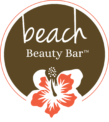It’s easy to forget that every product (yes, every product) you put on or near your face needs to be “acne-safe”. Including your sunscreen. Acne-safe sun protection used to be harder to come by but these days – it’s much easier to get your hands on.
If you’re acne prone – there’s no doubt you’ve been on the hunt for the best sunscreen your skin type can tolerate without causing you to breakout. Having acne-prone skin & protecting it from the sun sans pimple popping is no simple task. You can’t just saunter into Sephora and choose whichever sunscreen bottle or stick that looks best on the shelf.
Acne prone skin types need a sun protectant that doesn’t melt down your cheeks and forehead the second you sweat or get greasy but is still gentle enough to not aggravate the skin even more.
This isn’t an impossible feat. We have seen a lot of clients with your skin type that thrive and get beautifully clear using sunscreen that doesn’t clog up their pores. Luckily for you, Beach Beauty Bar & Acne Clinic’s SPF formulas were created for sensitive, acne-prone skin – just like yours.
The Catch 22 of Sun Protection
The thing about sunscreen, though, is that it’s often sticky, greasy, or has an unpleasant fragrance and lest we not forget the infamous reputation for leaving a white cast.
Add to that its well-known characteristics for exacerbating acne-prone skin… it’s no wonder so many people relegate it to their beach bags.
Nothing feels quite as insulting as applying sunscreen, a resolutely good thing you can do for yourself, and then watching as it causes a breakout on your brand spanking new clear skin.
We get it. We really do. BUT sunscreen doesn’t have to be the clear skin enemy you’re villainizing it to be.
Why is Sunscreen Important for Acne?
But first…
Sunscreen is especially important for acne-prone individuals because the UVA and UVB rays from the sun can make areas of hyperpigmentation more noticeable, acne scars less likely to fade, and can cause further acne breakouts due to increased gunk on the surface of the skin.
Though a summer tan can often convince some that unprotected skin in direct sunlight reduces acne breakouts, too much sun exposure is much more likely to inflame an acne breakout, and a tan will only temporarily mute the color of reddened pimples on the skin.
Sunscreen is helpful in not only preventing acne breakouts, but also protecting the skin against premature aging, pigmentation, and cancer.
What is the Best Acne-Safe Sun Protection?
Our clients typically fall into the acne-prone, greasy, and sensitive trifecta of skin types. If you’re still shopping around in places like Ulta and Target for your skincare – I’ll be honest here, finding that perfect match for you can feel daunting and exhausting in big box stores.
Fortunately, it doesn’t have to be—at least not anymore.
Mineral vs. Chemical Sun Protection
To read more about the difference between mineral and chemical sunscreen, click here. But like many skincare products, sun protection can be confusing, and there’s a lot of opposing information out there about the various types of sunscreens and which is best. Natural? Physical? Mineral? Chemical? What does it all mean? Here is an easy way to remember what each sunscreen is best for:
- Our only chemical spf is Sun Guard… It’s a great choice for daily use spf 30.
- Our mineral SPFs are reef safe and offer gentler sun protection.
- UV Shade is the most popular — tinted with a matte finish.
- Ultra UV Shade has a slight tint and is great for those who are very dry.
- We love Sol RX sport for athletes. It’s waterproof. SPF 50 and it won’t bleed into the eyes with sweat. Great for soccer, water polo, softball, baseball, etc.
- Our Ultra Solar Guard and Solar Guard are just like UV Shades, but don’t have any tint.
The cult favorite at our clinic is 1/2 pump UV Shade mixed with 1/2 pump Ultra UV shade for the perfect protection and golden glow. Our lifelong clients swear by these two blended together and so do we.
The blend is hailed as the ideal amount of moisture plus beautiful coverage for everyday use.
Always remember to reapply every 60-80 minutes if in the direct sun.
The Bottom Line
The bottom line is that sun protection is an everyday necessity, and how you achieve it remains your call. As long as the sunscreen offers SPF 30 or higher, broad-spectrum protection, and is water-resistant, it can be effective against UV damage.
Still confused about which sun protection is best for you?
Schedule an initial consultation and treatment today, so we can get you on the road to clear glowing healthy skin!
Cheers to clear!
Rene

